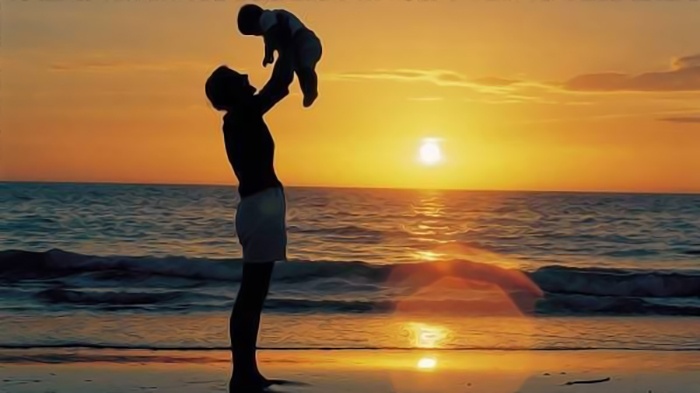
What is a father? What is a dad? What does your father do for you simply by fathering you and then do to you by his love and his absence, by his care and his neglect, and by his virtues and his weaknesses? If the Neo-Freudians are right, then your father and your mother have very different roles in the formation of your person. It is the mother who is your symbiotic link to life, and it’s from her, much more so than from your father, that you get your body, your link to the earth, and, to the extent that you have this, your sense of being loved, wanted, cradled, and cherished. It’s she who gestates, carries, and then licks, cradles, and nourishes the child. No child or adult ultimately ever forgets this and the constrictions or freedoms in our hearts are very linked to our mothers. But it is the father who mediates authority and who must give the child both permission to enjoy life and the challenge of discipline. It’s the father who must, especially by the way he himself lives, model for the child the correct combination of pleasure and renunciation. It’s from him, more so than from the mother, that the child learns the combination of release and control, submission to authority, and the freedom to walk one’s own path. A father’s task is also key in initiating you into adulthood, in helping to lead you beyond being the little boy or the little girl towards the adult, the man or the woman. A father does this to you by, first of all, showing you in his own life how erotic energy and warrior energy (your energy for love and your energy to fight) should flow into each other and form some harmony so that all the boundless and chaotic forces within you can be contained, focused, and then creatively opened and spent for the service of God and community. The father must show his child the purpose of both sexual and warrior energy, namely, how enjoyment and creativity blend with courageous self-renunciation and how erotic and warrior energy merge in the fight to protect the community (especially its weakest members). Your father must teach you how to be both a lover and a warrior.
My own father, imperfect as are all human fathers, didn’t always find, nor radiate, the perfect balance between enjoyment and discipline, lover and warrior, sexual enjoyment and self-abnegation. As one of his sons, I also do not always know how to walk the tightrope, and there is sloppiness between laziness and overwork, love and anger, self-indulgence, and masochism. Sometimes, I can protect the community, and sometimes, I cannot even protect myself. But I have steadiness, too, sometimes, beyond the slopping around. I had a good dad. He both loved and fought, and he was sometimes too hard on himself, but sometimes he thoroughly enjoyed his life.
